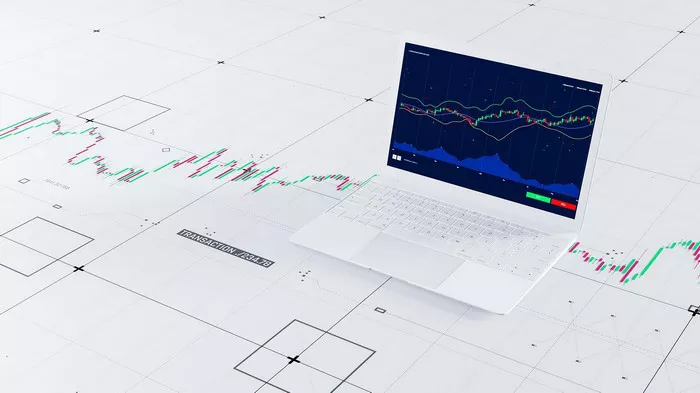In a rapidly evolving financial landscape, PayPal—a global leader in digital payments—made a significant move into the crypto space by introducing its own stablecoin, PayPal USD (ticker: PYUSD). This digital asset, pegged to the U.S. dollar, was launched to bridge the gap between traditional finance and the decentralized world of cryptocurrencies. The innovation comes at a time when stablecoins are increasingly being seen as a reliable method for international transfers, smart contract integrations, and crypto asset trading.
PayPal’s initiative reflects a deep commitment to staying at the forefront of financial technology while also aiming to empower everyday users with tools that make transactions more seamless and secure. In this article, we’ll explore what PayPal USD crypto is, why it matters, how it works, and what it means for individual users, businesses, and the future of finance.
What Is a Stablecoin?
Before diving into PYUSD, it’s essential to understand what a stablecoin is. A stablecoin is a type of cryptocurrency designed to maintain a stable value by being pegged to a reserve asset, typically a fiat currency like the U.S. dollar. This is done to mitigate the extreme volatility commonly associated with cryptocurrencies such as Bitcoin or Ethereum.
Stablecoins like PYUSD serve as a bridge between fiat and crypto. They offer the speed, transparency, and global reach of cryptocurrencies while preserving the reliability and trust of fiat currencies. This makes them ideal for everyday payments, remittances, and decentralized finance (DeFi) applications.
Key Features of PayPal USD
PYUSD was developed in collaboration with Paxos Trust Company, a regulated financial institution known for issuing other stablecoins like Binance USD (BUSD). Here are the core features that define PayPal USD:
1:1 Backing with U.S. Dollar Reserves: PYUSD is fully backed by U.S. dollar deposits, short-term U.S. treasuries, and similar cash equivalents. This ensures that each token can be redeemed for one U.S. dollar.
Transparency: Paxos publishes monthly attestation reports to provide visibility into the reserves backing the stablecoin.
Redeemability: Users can convert PYUSD into USD or use it for other transactions within PayPal’s ecosystem.
Ethereum-Based: PYUSD is issued on the Ethereum blockchain as an ERC-20 token, making it interoperable with various decentralized applications (dApps).
Why Did PayPal Launch Its Own Stablecoin?
PayPal’s move into the stablecoin arena is motivated by several strategic goals:
Enhanced Payment Flexibility: PYUSD allows users to make low-cost, near-instant international transactions that bypass traditional banking fees and delays.
Participation in Web3: As blockchain and Web3 applications grow, having a native crypto asset positions PayPal to integrate deeper into this emerging digital economy.
Regulatory Clarity: By working with a regulated issuer like Paxos, PayPal ensures compliance and builds trust with regulators and users.
How to Use PayPal USD
Using PYUSD is simple, especially if you’re already familiar with PayPal. Users can:
Buy or Sell PYUSD within the PayPal app or website.
Send or Receive PYUSD from friends, family, or businesses in supported regions.
Transfer to External Wallets that support ERC-20 tokens, expanding usage outside of PayPal’s ecosystem.
Make Purchases with merchants that accept PayPal, potentially using PYUSD as the funding source.
Benefits of Using PYUSD
There are several advantages to using PayPal USD:
Stable Value: Users don’t have to worry about volatility that affects other cryptocurrencies.
Trust: Backed by PayPal’s reputation and Paxos’ regulatory compliance.
Integration: Fully integrated into one of the world’s largest payment platforms.
Concerns and Criticisms
Despite its potential, PYUSD has also faced criticism and skepticism:
Centralization: As a centralized stablecoin, it can be frozen or censored by PayPal or Paxos, which contrasts with the decentralized ethos of crypto.
Regulatory Risks: The regulatory environment around stablecoins is evolving, and future legal changes could impact PYUSD’s availability or operations.
Limited Use Cases: Initially, PYUSD’s utility is largely confined within the PayPal ecosystem, although this may expand over time.
Impact on the Broader Financial Ecosystem
The introduction of PYUSD represents a significant moment for both traditional finance and cryptocurrency. It could accelerate the adoption of stablecoins for mainstream uses like:
Retail Payments: Using PYUSD at checkouts could become as common as using a debit card.
International Transfers: Remittances could become faster and cheaper for millions of people.
DeFi Participation: Users could use PYUSD in DeFi protocols to earn interest, provide liquidity, or participate in decentralized exchanges.
How This Affects Forex and Crypto Markets
The Forex Market is already influenced by developments in crypto, especially stablecoins. As PYUSD gains traction, it may offer traders a new tool to hedge against currency volatility. Furthermore, in Forex Trading, stablecoins are being used to settle trades faster and more securely than traditional bank wires.
PayPal’s move also puts pressure on legacy financial institutions to adopt digital solutions. As a trusted brand, its entry could bring more users into crypto, potentially affecting Forex Price swings where fiat-crypto exchanges become more intertwined.
The Future of PYUSD and Stablecoins
As regulators, consumers, and businesses continue to understand and adapt to stablecoins, PayPal USD may become an integral part of global financial infrastructure. It might also inspire other tech giants to launch their own crypto tokens, further blending the lines between fiat and digital money.
Conclusion
PayPal USD (PYUSD) represents a pivotal development in the merging worlds of traditional finance and cryptocurrency. Designed as a transparent, secure, and regulated stablecoin, it offers a user-friendly entry point into digital finance. While concerns around centralization and regulation persist, its potential to reshape payments and DeFi interactions is undeniable.
As more users engage with PYUSD, whether for personal payments, business transactions, or blockchain-based finance, it could become one of the most influential digital assets in the market today. Whether you’re an investor, a crypto enthusiast, or someone exploring new tools for global transactions, PayPal USD is worth paying attention to.
Related topics:































